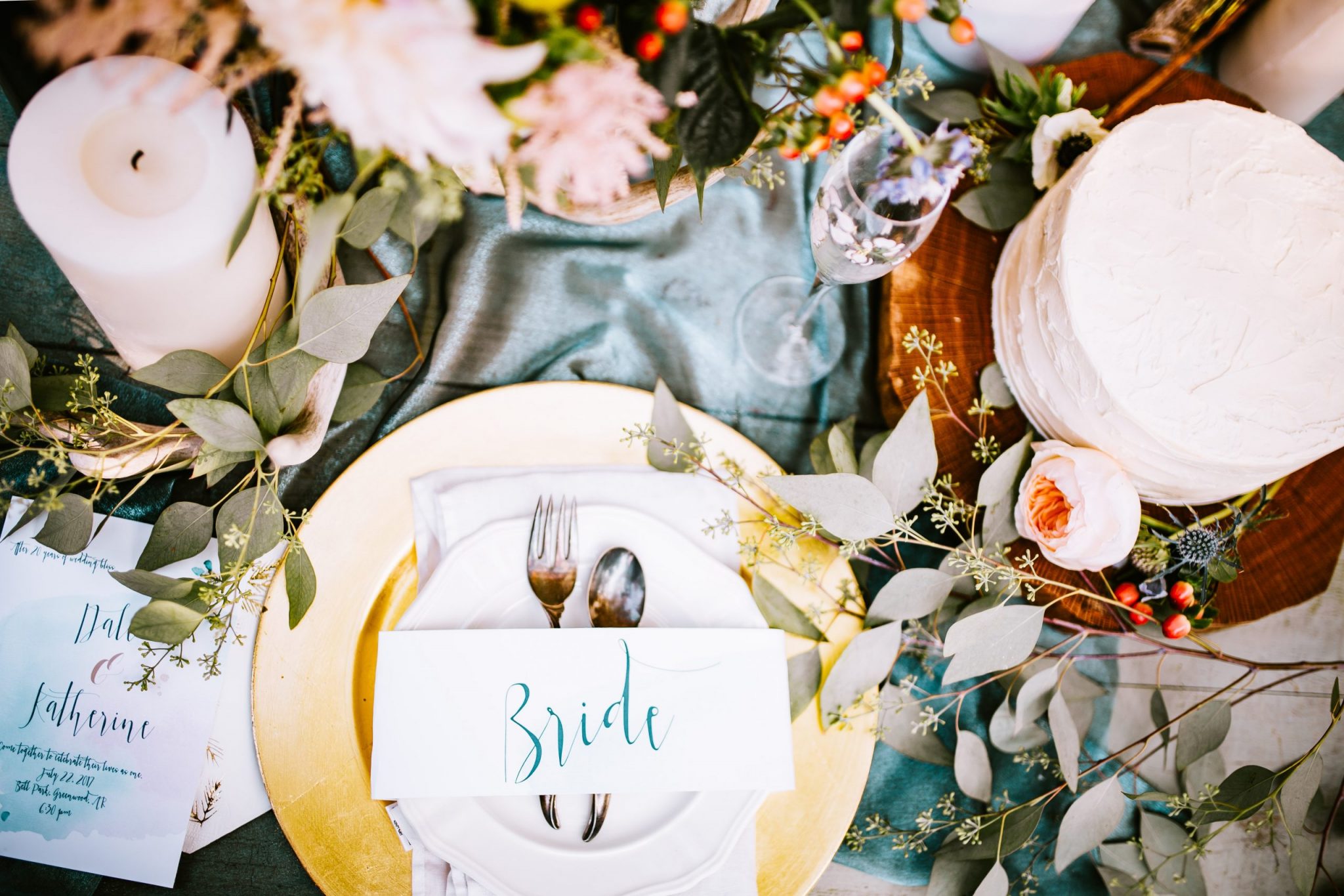
How to Create a Spending Plan for Your Wedding
When people think of weddings, most picture the end result—ring exchanges, first dances, cake tastings, and all the other sweet moments of the day. Yet, any engaged couple knows that there is much more leading up to that moment.
Yes, the journey to “I do” is incredibly exciting — but it can also be time-consuming and stressful if not planned well! Whether you’re going for a grand affair or an intimate gathering, there’s a seemingly endless list of decisions to make.
You have to select the perfect wedding venue, plan the menu, book photographers and videographers, secure entertainment, rent additional equipment, choose your flowers — suffice it to say that it all adds up!
Sometimes, even the minor wedding details can appear to be life-altering choices because you want to get everything perfect to create the most magical and unforgettable event! After all, a wedding is an important milestone in a couple’s relationship and a once-in-a-lifetime celebration.
While you might be inclined to do all the things, it is crucial to adhere to a realistic spending plan so you can stay on track without stretching your finances too thin. Let’s cover some insightful tips that will help you keep your expenses in check.

Find out how much you can afford
Let’s crunch some numbers! Before making any big decisions, you and your partner need to determine how much money you will set aside to make your vision a reality. A big part of this will come from the type of wedding you have in mind. A luxury wedding with hundreds of guests typically requires a larger investment than a small intimate wedding with less than 100 people in attendance.
Get clear on your wedding vision and do some light research to estimate how much each element will cost. Then, turn your attention to your bank account. Every couple will have different financial needs and expectations, so make sure you and your partner discuss the rest of your expenses to ensure you agree on your total wedding investment.
It may help to open a separate account for wedding expenses to stay organized and stick to your spending plan. If family members are contributing to your wedding funds, be sure to take that into account before moving forward.
Keep track of where your money goes
When you create a spending plan broken down by category, you need to use it if you want to stay on track. Consider creating it in a spreadsheet so you can input expenses as they come in and keep an eye on where you stand. Your spending plan is meant to hold you accountable and ensure you make sound decisions, so don’t forget about it!
This simple tool also helps you stay organized by keeping all the important numbers in one place. The transparency of cash flow prevents you from being blindsided and reduces the stress of losing receipts or missing invoices.
Build out your spreadsheet with three columns:
- Estimated Cost — ballpark numbers based on your initial research
- Modified Cost — expenses gathered from vendor quotes
- Actual Cost — final costs including taxes, gratuity, and other add-ons
Pro tip: Start your wedding preparations by selecting your venue first, as it is typically your biggest expense. Plus, it sets the tone for the whole event, finalizes your wedding date, and guest count, so you’ll be ready to roll once secured!
Pro tip: Consider booking a venue with all-inclusive packages to get the most bang for your buck. In addition to the savings, it also means fewer contracts, invoices, and vendors to coordinate — perfect for couples who want a simple journey to the aisle!
Brace yourself for unexpected expenses
Small expenses here and there eventually add up, so it’s important to review and understand each contract fully before committing to anything. Here are a few to be mindful of as you prepare your spending plan:
- Transportation expenses for out-of-town vendors
- Late fees for missed invoices
- Overtime fees for events that run over time
- Storage fees for equipment needed before the event
Other expenses that should be expected but are often overlooked are vendor tips! Set aside extra money to tip your wedding team, like your hair and makeup artists, your photographer, your caterer, and your DJ. Just be sure to double check your invoices to ensure gratuity isn’t already included (in which case you’re covered!).
Know what to prioritize
Setting a clear list of priorities is a great way to ensure that more resources, effort, and time are directed towards things that matter most to you and your partner. Each of you should name the three wedding elements that you’re most excited about — and it’s OK if they overlap!
For example, if you’re both foodies, it’s worth investing in catering to serve a menu that impresses even the finest taste buds. Or, if wine is your love language, don’t be afraid to spend a little extra to book a sommelier for onsite tastings!
Don’t be afraid to take cost-cutting measures for details that aren’t as important. Perhaps you might consider holding your wedding during an off-season, forgoing a live band, or creating your own wedding invitations. Hosting the ceremony and reception at the same venue can also save on transportation costs.
Hopefully, these tips will help you feel more comfortable preparing and following your spending plan to achieve the wedding of your dreams. Remember to base your expenses on what you can realistically afford. Don’t feel pressured to have a wedding that lives up to other people’s expectations — all that matters is that it’s true to who you are as a couple. Enjoy your wedding preparations!












